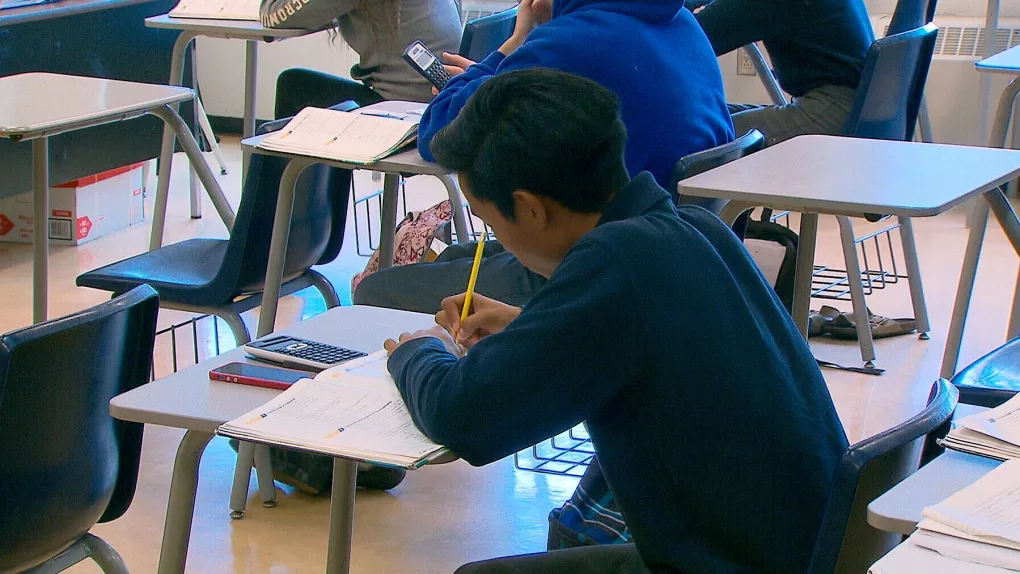How to Choose the Right School in Ontario — Education is a vital aspect of a child’s development and future success. In Ontario, Canada, parents and students are fortunate to have a diverse range of educational institutions to choose from, each offering unique programs, teaching philosophies, and extracurricular activities. Whether you’re a parent looking for the perfect school for your child or a student seeking to further your education, selecting the right school is a decision that should not be taken lightly. In this article, we will explore the factors to consider when choosing the right school in Ontario.
Table of Contents
How To Choose the Right School in Ontario
1. Define Your Educational Goals and Values
Before you begin your school search, it’s essential to clarify your educational goals and values. What do you want to achieve from your educational experience? Are you looking for a school that places a strong emphasis on academics, sports, the arts, or a combination of these? Do you have specific values or beliefs that you want the school to align with, such as a particular religious or philosophical perspective? Defining your educational goals and values will help you narrow down your options and focus on schools that align with your priorities.
2. Research School Types
Ontario offers various types of schools, including public schools, Catholic schools, private schools, French immersion schools, and specialized programs such as Montessori and IB (International Baccalaureate). Each type of school has its unique characteristics and advantages. Public schools, for example, are funded by the government and are open to all residents. Catholic schools provide a faith-based education, while private schools offer diverse curricula and class sizes. French immersion schools focus on bilingual education, and specialized programs cater to specific interests and needs. Research the different types of schools available to determine which one best suits your requirements.
3. Consider Location and Commute
The school’s location is an important practical consideration. Is the school close to your home or easily accessible by public transportation? A long daily commute can be tiring and may affect a student’s overall well-being. Additionally, consider the safety of the neighborhood where the school is located. Explore the school’s proximity to amenities like libraries, parks, and extracurricular facilities.
4. Evaluate Academic Programs
The academic programs offered by a school are a fundamental factor to consider. Review the school’s curriculum, teaching methods, and academic performance. Ontario’s public schools generally follow the Ontario Curriculum, but private and specialized schools may offer unique programs. It’s essential to evaluate whether the school’s academic offerings align with your educational goals and values. Additionally, check the school’s standardized test scores and performance data to gauge its academic quality.
5. Explore Extracurricular Activities
Education is not limited to the classroom. Extracurricular activities play a significant role in a student’s holistic development. Research the extracurricular programs offered by the school, including sports, arts, clubs, and community service opportunities. A well-rounded education should provide students with a range of activities to explore their interests and passions. Choose a school that supports and encourages extracurricular involvement.
6. Assess Class Sizes and Teacher-Student Ratio
Class sizes and teacher-student ratios can impact the quality of education. Smaller class sizes often allow for more individualized attention and a better learning experience. Consider the average class size at the schools you are interested in and inquire about the teacher-student ratio. A lower ratio typically indicates a more personalized approach to education.
7. Review Support Services
It’s essential to consider the support services available at the school. Does the school have special education programs for students with unique learning needs? Are there guidance counselors or career services to help students navigate their academic and career paths? Support services can make a significant difference in a student’s educational journey, so it’s important to choose a school that provides adequate support.
8. Financial Considerations
The cost of education can vary significantly depending on the type of school you choose. Public schools in Ontario are funded by the government, making them free for residents. However, private schools and specialized programs can come with tuition fees. It’s important to assess your budget and financial considerations. Consider scholarships, financial aid, and payment plans that may be available to ease the financial burden of private or specialized education.
9. Visit Schools and Attend Open Houses
One of the most effective ways to get a feel for a school is by visiting it in person. Attend open houses, school tours, and information sessions to meet teachers, staff, and students. This will provide you with an opportunity to ask questions, observe the school environment, and assess whether it aligns with your expectations. Pay attention to the school’s atmosphere, facilities, and the interaction between students and teachers during your visit.
10. Seek Feedback and Reviews
Reach out to current or former students and their parents to gather feedback on their experiences at the schools you are considering. Online reviews and testimonials can also provide valuable insights into a school’s strengths and weaknesses. It’s important to gather as much information as possible from those who have firsthand experience with the school.
11. Consider Future Opportunities
Your choice of school should not only meet your immediate needs but also prepare you for future opportunities. Consider the school’s track record in preparing students for higher education and their career paths. Research whether the school has a strong network of alumni and connections with colleges and universities.
12. Trust Your Instincts
Ultimately, choosing the right school is a personal decision. While research and data are important, it’s also crucial to trust your instincts and consider the overall feeling you get from a school. Ask yourself whether you can envision yourself or your child thriving in that environment.
Conclusion
Choosing the right school in Ontario is a significant decision that requires careful consideration of various factors. By defining your educational goals and values, researching school types, evaluating academic and extracurricular offerings, and considering practical aspects such as location and finances, you can make an informed choice that aligns with your needs. Visiting schools, seeking feedback, and trusting your instincts are essential steps in the decision-making process. Remember that the right school can provide a foundation for a fulfilling and successful educational journey in Ontario. Take the time to explore your options, and you’ll be well on your way to finding the perfect educational fit for you or your child in Ontario.
Choosing the right school in Ontario is a significant decision that requires careful consideration of various factors. By defining your educational goals and values, researching school types, evaluating academic and extracurricular offerings, and considering practical aspects such as location and finances, you can make an informed choice that aligns with your needs. Visiting schools, seeking feedback, and trusting your instincts are essential steps in the decision-making process. Remember that the right school can provide a foundation for a fulfilling and successful educational journey in Ontario. Take the time to explore your options, and you’ll be well on your way to finding the perfect educational fit for you or your child in Ontario.



